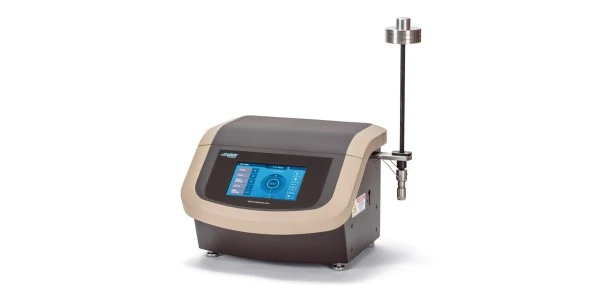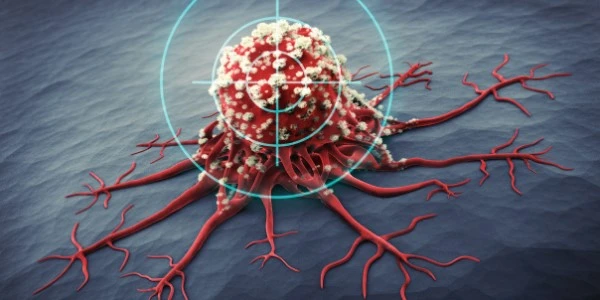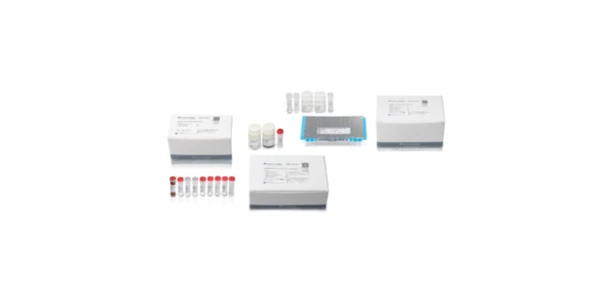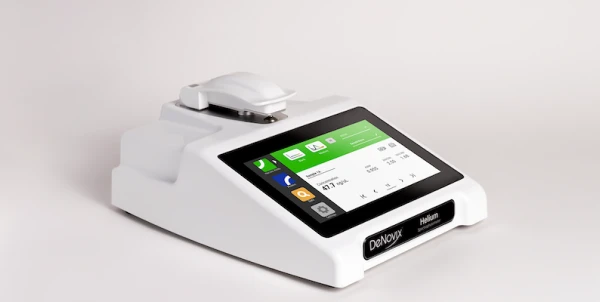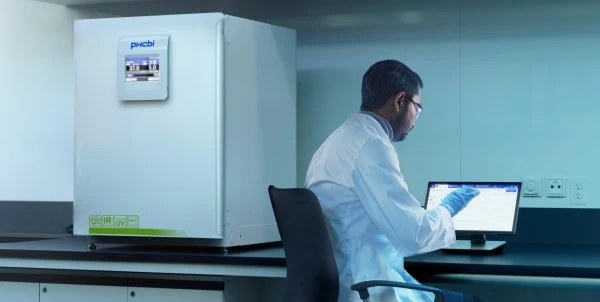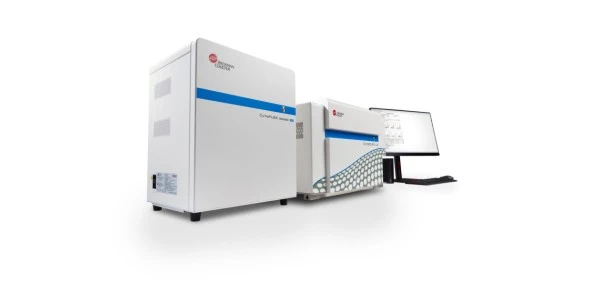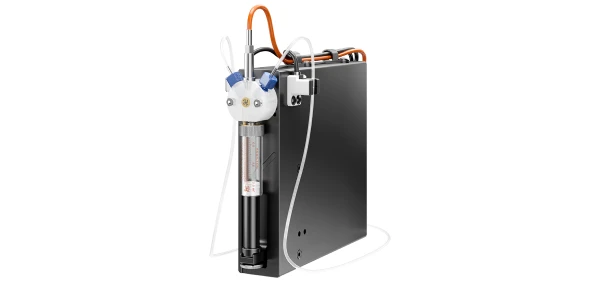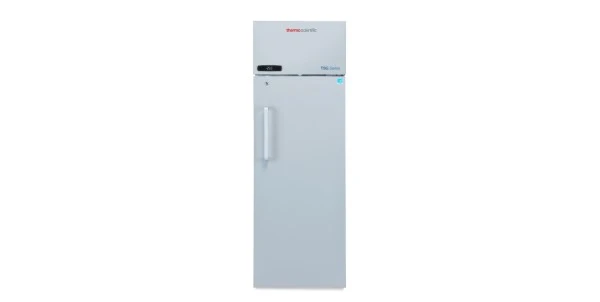The New Shimadzu MALDI-8020 Benchtop MALDI-TOF Mass Spectrometer Merges Size Efficiency with Instrument Performance
Shimadzu has embraced the growing trend in size conscious MS instrumentation with the release of the MALDI-8020 benchtop MALDI-TOF at ASMS 2017. This instrument promises similar performance specifications as larger, more expensive devices, with a significantly smaller footprint.
Along the lines of lab efficiency, the MALDI-8020 includes a newly designed load-lock system for rapid sample plate introduction, while the new solid-state laser provides fast data acquisition speeds. An integrated bar code scanner permits seamless identification and storage of sample data. The TrueClean™ automated UV laser source feature allows in-place cleaning to keep the instrument running at peak performance levels.
As a linear TOF, the instrument permits low level detection of proteins, peptides, polymers, and other analytes. It also accommodates existing methods for peptide mass fingerprinting and polymer distribution analysis, among others. The MALDI Solutions software is suited for Pharma quality control labs as well as academic and industry labs with limited space. The software offers intuitive and secure operation to accommodate audit tracking, user management, as well as 21 CFR Part 11 compliance.
The demand for size efficient MS instrumentation is growing as the availability of lab space is becoming a precious resource. In labs where established QC methods or rapid screening of intact samples are routine, there is less of a need for larger instruments that often accompany discovery research.
The release of the MALDI-8020 represents the return of Shimadzu to the benchtop market, with impressive design innovations to address size considerations without sacrificing performance.
Shimadzu also announced release of the new nSMOL (nano-surface and molecular orientation limited proteolysis) Antibody Bio-Analysis Kit. The proprietary technology permits limited proteolysis of the FAB region of monoclonal antibodies, thereby significantly enhancing LC-MS antibody analysis.
The kit is a complete solution for collecting mABs from blood and other biological fluids using an immunoglobulin collection resin, followed by limited proteolysis using trypsin conjugated nanoparticles. The resultant Fab fragments can then be analyzed by MRM using a Shimadzu LC-MS 8050/8060 triple quad mass spectrometer.
The technique eliminates time intensive steps such as denaturation, reduction, and alkylation, which are typically involved in the process. With the selective fragmentation of the Fab regions only, the technique minimizes background and ion suppression thus boosting detection and analysis.
Shimadzu has made a significant progress in the analytical consumables markets, and the new nSMOL kit is an excellent example of their commitment to providing complete laboratory solutions.
